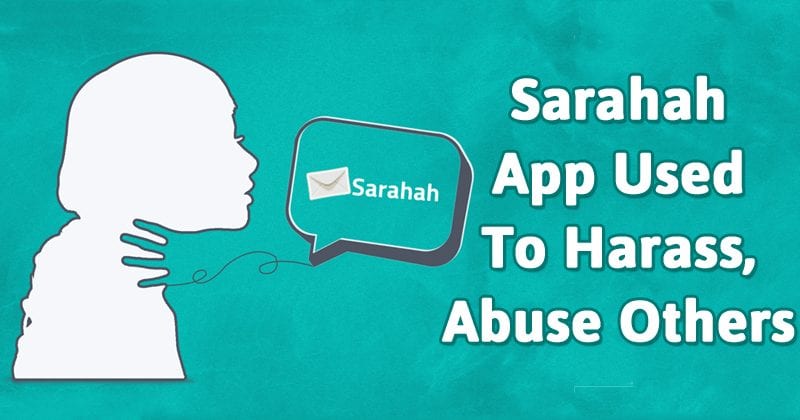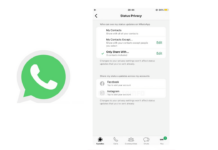We all know very well that Sarahah is a new application for anonymous messaging, which has turned into a few months, and with low resources, in one of the most downloaded in the world, but has deviated from its initial objective and is now used for harassment among teenagers.
Sarahah Application Used To Harass, Abuse Others
Sarahah, a new application for anonymous messaging, has turned into a few months, and with low resources, in one of the most downloaded in the world, but has deviated from its initial objective and is now used for harassment among teenagers.
As with Yik Yak, Sarahah – which in Arabic means honesty and frankness – has gained momentum thanks to the novelty of anonymity among the younger ones, but just as its predecessor is beginning to be criticized for becoming an instrument for the online harassment.
Sarahah, developed in Saudi Arabia by programmer Zain Alabdin Tawfiq and launched last February, has become one of the most popular applications on Android and iPhone at the moment, despite not having millionaires funds or an extremely complex technology.
Sarahah allows you to create a personalized web address in which anyone can leave an anonymous message without being able to answer the comment or continue a conversation.
The simple logic behind the application was designed for a practical and useful premise: “Help you discover your strengths in areas of improvement by receiving feedback from employees and friends in a private way.”
What Tawfiq did not expect was that on the back of Snapchat’s popularity, a predominant social network among young people, users will begin to share their web address where they leave private messages.
Initially, Sarahah was employed to publish anonymous love messages, but the user has quickly resulted in messages of harassment, insults, and threats.
As happened with Yik Yak, which became popular in college months, it raised $73 million and was liquidated this year, anonymity, which largely began to be used for constructive messages or jokes, led to insults, bad taste, and bullying.
“My son made an account and in less than 24 hours someone left him a terribly racist remark, saying he should be lynched. The web is a breeding ground for hatred,” says one of the mothers who has left comments on the usefulness of the application.
Till to the date, anonymous messaging applications have had a meteoric rise and a short life in part because of the strong controversies that wake up to become a vehicle of digital harassment, one of the great problems of the internet.
Likewise, Honesty Box, an extension of Facebook that allowed to send anonymous messages on the popular social network created in 2007, was losing popularity to the fact that the offensive messages had become owners and masters of the application.
Likewise, Askfm, a website created to ask anonymous questions and answers, is believed to be the channel used to push several teenagers into suicide for offensive comments and harassment, something that the company tries to correct with usage guidelines.
Tawfiq said he will try to find ways to discourage the sending of offensive and not “constructive” messages and the messaging network becomes a place where positive and useful messages can be transmitted frankly.
The desire of Internet users, especially younger ones, to know what others think of them have led to applications such as Sarahah, Yik Yak, Askfm or Secret to increasing quickly without great technological effort but have become most unpleasant corners of the internet.
So, what do you think about this? Simply share your views and thoughts in the comment section below.



